Truthdigger of the Week: José Santos Sevilla, Slain Champion of Indigenous Hondurans
Tolupans have been struggling to save ancestral lands from miners and loggers since a U.S.-supported junta took control of the country.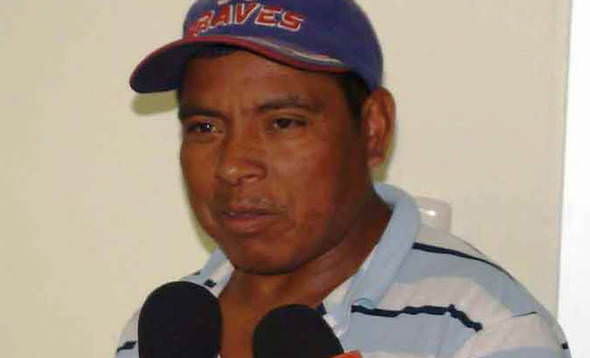
José Santos Sevilla. (Democracy Now!)
Every week the Truthdig editorial staff selects a Truthdigger of the Week, a group or person worthy of recognition for speaking truth to power, breaking the story or blowing the whistle. It is not a lifetime achievement award. Rather, we’re looking for newsmakers whose actions in a given week are worth celebrating.
When a U.S.-abetted junta seized control of Honduras in 2009, foreign mining and logging corporations gained an upper hand, and in the years that followed, more than 120 advocates of the country’s unyielding indigenous communities were murdered. Among them was Bertá Caceres, whose slaying by gunmen in her family’s home was widely reported in 2016. On Friday of last week, professor José Santos Sevilla was murdered under similar circumstances.
One of nine major indigenous groups living in Honduras and composing almost 10 percent of the population, indigenous Tolupans are struggling to protect their ancestral lands from miners and loggers.
In response to Sevilla’s assassination, the National Commission on Human Rights in Honduras advised “immediate precautionary” measures for indigenous leaders in the area of Ceiba, where he lived. Many children stopped attending school, and families are reported to be considering leaving.
A recent study by the group Global Witness found that Honduras is one of the most dangerous countries in the world for human rights and environmental activists. In 2015, the United Nations special rapporteur on the rights of indigenous peoples warned of unrestrained violence—including assassinations—against Tolupan organizers. Attackers were described as enjoying impunity provided by the state.
According to the report: “For nearly a decade, Tolupan indigenous peoples from northern Honduras have been threatened, criminalised and killed for taking a stand against illegal logging and mining operations which have pillaged their resources without consulting communities. The Tolupan are the most marginalised indigenous group in Honduras, living in extreme poverty in remote rural areas with little access to basic services.”
The group added that “rich elite and powerful people of the country, among them members of the political class,” are among those behind the killings.
During her 2015 visit to Honduras, Victoria Tauli-Corpuz, the U.N. special rapporteur, said that “[t]he murders of indigenous leaders defending their lands, including numerous Tolupan, Garífuna, Lencas, Chortís and Pech leaders, are among the most frequently reported cases appearing before the Special Prosecutor for Ethnic and Cultural Heritage, along with cases of injuries, attempted Homicide and violence against indigenous women.”
The U.N. may hear of such cases frequently, but for most of the world, Sevilla’s death has gone unnoticed. And yet in the years following the ousting of the democratically elected government of José Manuel Zelaya, Honduras had the highest murder rate in the world, with San Pedro Sula, its second-largest city, ranking as more dangerous than Ciudad Juárez, Mexico, where drug cartels reign.
The U.S. acknowledged the government that was “elected” after the coup, but most of Latin America did not. As University of California historian Dana Frank wrote in 2012: “Most opposition candidates withdrew in protest, and all major international observers boycotted the election, except for the National Democratic Institute and the International Republican Institute, which are financed by the United States.”
According to Frank:
This chain of events — a coup that the United States didn’t stop, a fraudulent election that it accepted — has now allowed corruption to mushroom. The judicial system hardly functions. Impunity reigns. At least 34 members of the opposition have disappeared or been killed, and more than 300 people have been killed by state security forces since the coup, according to the leading human rights organization Cofadeh. At least 13 journalists have been killed since [former President Porfirio Lobo Sosa] took office, according to the Committee to Protect Journalists.
The indigenous people of Honduras and their allies must despair that the most powerful nation on earth backs their antagonists and murderers. Yet many persevere, as did Sevilla. American writer James Baldwin said that the users of force misunderstand it; they believe it impresses their targets to the point of giving way, when in fact it only convinces them of their attackers’ weakness.
For leading indigenous Hondurans in their struggle for freedom and self-determination, a struggle in which he lost his life, José Santos Sevilla is our Truthdigger of the Week.
Independent journalism is under threat and overshadowed by heavily funded mainstream media.
You can help level the playing field. Become a member.
Your tax-deductible contribution keeps us digging beneath the headlines to give you thought-provoking, investigative reporting and analysis that unearths what's really happening- without compromise.
Give today to support our courageous, independent journalists.
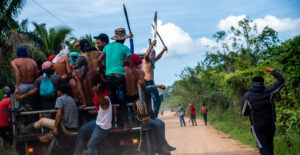
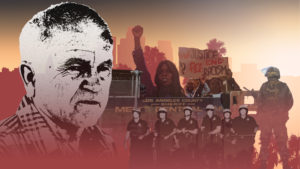
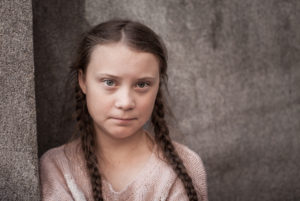
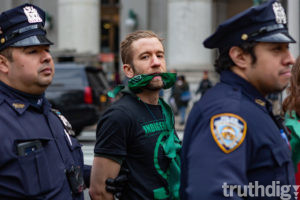
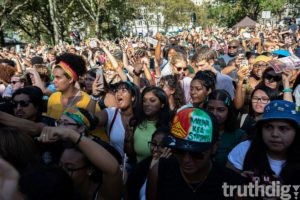


You need to be a supporter to comment.
There are currently no responses to this article.
Be the first to respond.